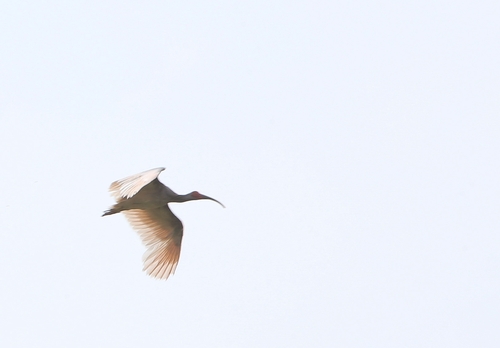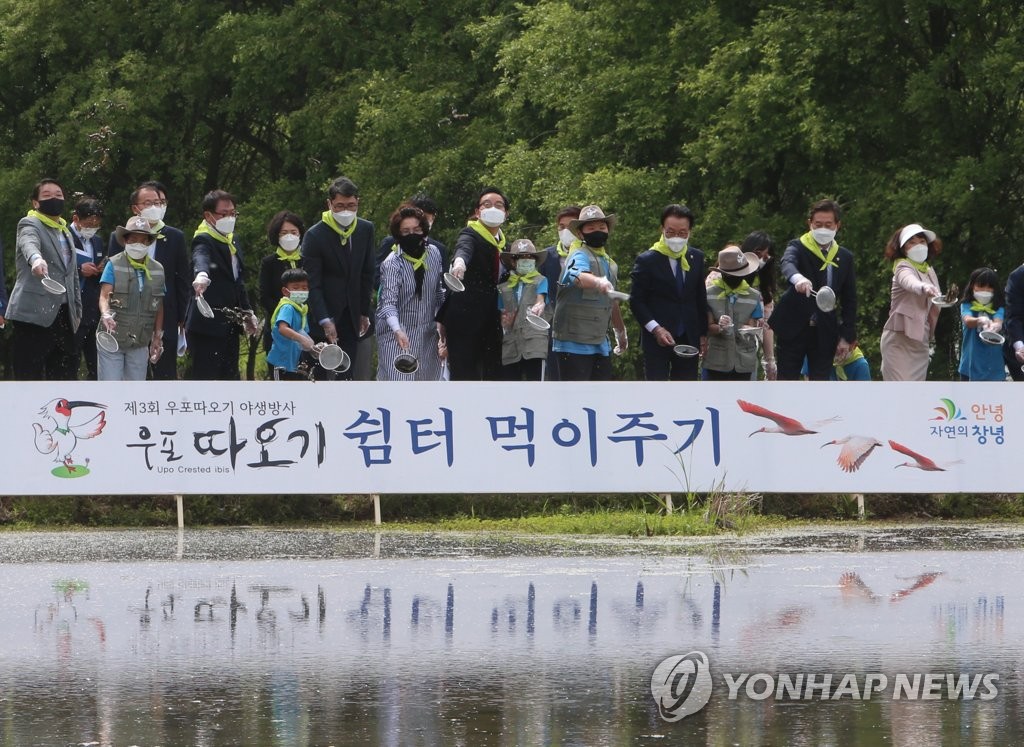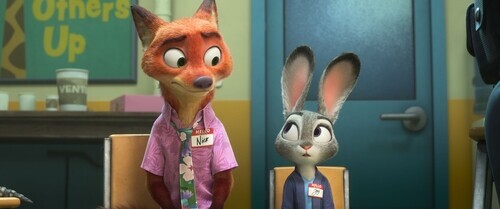 |
| ▲ This photo taken by reporter Han Ji-eun shows a crested ibis soaring through the sky. |
 |
| ▲ This photo shows people at Changnyeong county feeding the crested ibises on May 6th. (Changnyeong=Yonhap News) |
CHANGNYEONG, May 6 (Yonhap) -- Crested Ibises, a natural monument and an endangered bird, flew vigorously in the sky in Changnyeong, Gyeongsang Province.
The Changnyeong county opened the Wild Adaptation Training Center doors located at the Upo Crested Ibis Restoration Center in the afternoon and sent 10 crested ibises, which completed its adaptation training, back to nature.
Starting in 2019, the Upo Crested Ibis Restoration Center will be releasing 40 of the birds every year near the Upo Wetland.
A total of 40 males and female crested ibises will be released this year.
First, 10 crested ibises are released, and the remaining 30 are left in the open with a wide radiation field door in order for them to fly on their own.
Each crested ibis are attached to a GPS device so that their location can be tracked anytime.
Changnyeong county set the ration of male and female crested ibises to 1:2 until the previous year, however, the ratio was the same this year.
Through increasing the breeding pairs, the possibility of natural breeding will increase as well.
Recently, two pairs of crested ibises have succeed in breeding in Mogok-ri and Okcheon-ri.
While one couple had two babies, the other crested ibis couple had one.
Dr. Kim Sung-jin from the Upo Crested Ibis Restoration Center said, "The babies born so far have been growing well at a rapid pace. Blood tests will also confirm their sex later this month."
This year's event of releasing the crested ibises were held under the theme of "Crested Ibises, Flying with Children," in means of restoring the crested ibises, which have been extinct in Korea, and to pass it on to future generations.
[https://youtu.be/ik6UWJLMq80 ]
(END)
(C) Yonhap News Agency. All Rights Reserved




















![[풀영상] 디즈니+ '메이드 인 코리아' 제작발표회|현빈 Hyunbin·정우성 Jung Woosung·우도환·서은수·원지안·정성일·강길우·노재원·박용우|Made In Korea](/news/data/20251215/p179554206856695_165_h.jpg)














